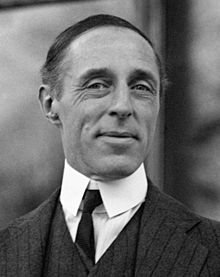D. W. Griffith
| D. W. Griffith | |
|---|---|

Griffith in 1922
|
|
| Born |
David Wark Griffith January 22, 1875 Oldham County, Kentucky, U.S. |
| Died | July 23, 1948 (aged 73) Hollywood, California, U.S. |
| Cause of death | Cerebral hemorrhage |
| Resting place | Mount Tabor Methodist Church Graveyard |
| Occupation | Film director, film producer |
| Years active | 1908–1931 |
| Spouse(s) |
Linda Arvidson (m. 1906; div. 1936) Evelyn Baldwin (m. 1936; div. 1947) (1910–2004) |
David Wark Griffith (January 22, 1875 – July 23, 1948), known as D. W. Griffith, was an American film director, writer, and producer who pioneered modern filmmaking techniques. He is known for The Birth of a Nation (1915) and Intolerance (1916).
The Birth of a Nation made use of advanced camera and narrative techniques, and its popularity set the stage for the dominance of the feature-length film in the United States. Since its release, the film has sparked significant controversy surrounding race in the United States, focusing on its negative depiction of African Americans and its glorification of the Ku Klux Klan. Today, it is both noted for its radical technique and condemned for its inherently racist philosophy. The film was subject to boycotts by the NAACP and, after screenings of the film had caused riots at several theaters, the film was censored in many cities, including New York City. Intolerance, his next film, was, in part, an answer to his critics.
Several of Griffith's later films, including Broken Blossoms (1919), Way Down East (1920), and Orphans of the Storm (1921), were also successful, but his high production, promotional, and roadshow costs often made his ventures commercial failures. By the time of his final feature, The Struggle (1931), he had made roughly 500 films.
Griffith is one of the founders of the Academy of Motion Picture Arts and Sciences and widely considered among the most important figures in the history of cinema. He is credited with popularizing the use of the close-up shot.
...
Wikipedia
